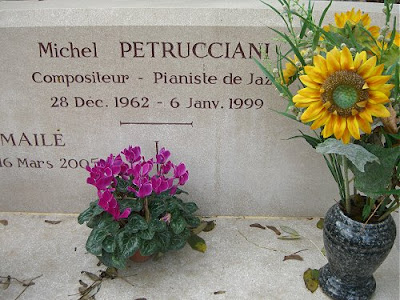The BBC - making great music available to all

Last week Nicholas Kenyon accused the BBC Trust of "undermining the BBC’s historic commitment to use every enlightened means to make great music available to all." This prompted a reader to email saying it would be an enlightened step to restore minimum levels of professionalism within Radio 3. Supporting this are a many examples of sloppy radio, one of which occured on April 3 2007, and has already entered into broadcasting folklore.
The lunchtime concert on that day was listed as a Mozart quartet followed by a Haydn quartet. That was the order that presenter Louise Fryer introduced the quartets, but the trouble was that the recordings was reversed. The on-air announcement introducing the Mozart quartet was followed by a performance of the Haydn quartet, and vice versa, and even the back announcements referred to the wrong item. No-one in the studio spotted the errors, and the recording of the concert available on Radio Player perpetuated the error. An apology was broadcast later in the afternoon, presumably after listener phone calls.
A comment on the BBC Radio 3 messageboard says it all - 'I recall it happening more often on Classic FM, where a broadcast of 'Beethoven's Emperor Concerto' consisted of the finale of a Mozart piano concerto followed by the first two movements of the Beethoven, with no sign afterwards that the presenter or producer had noticed the error. '
Fixed programme lengths are also causing very sloppy radio. A central concept of the original Third Programme was that the schedule should be the servant of the music, rather than vice versa. This concept has been abandoned in recent years, and I have already written here about the bizarre concert programmes resulting from attempts to fix Promenade Concerts to a ninety minute length plus interval.
The weekday evening concert on Radio 3 is now pre-recorded and fixed at a one hundred and five minute duration. This policy has truly made the music the servant of the schedule. On June 5 the Philharmonia's Elgar anniversary concert was shorn of its opening item to fit the time slot. The broadcast launched straight into the Violin Concerto, and the Serenade for Strings which opened the concert was broadcast separately eight hours before. On June 13 the stupidity ran the other way. The encore of Ravel's Bolero from the recorded Royal Festival Hall re-opening concert was broadcast two hours after the rest of the programme.
The general feeling of despair is echoed in this email from another reader ~ Hi, I've just come across your blog while looking for comments on the recent changes in Radio 3 and noticed that you have links to various radio stations. The main cultural and classical radio station in Poland is called Dwojka (Two) or Radio 2 and is really good. It somehow managed not to give in to any commercial pressures and serves well so-called high culture. You can also listen to it through internet. It is depressing to see how things have changed. About 6 years ago when I came to Britain the Polish station was about to be closed down (lack of funds) and I started listening to Radio 3. Now Radio 3 has transformed itself into something I simply cannot accept, while the Polish one is thriving. The link is: www.radio.com.pl/dwojka/ . Regards, Dorota
Emails like this, and the huge interest in my postings about the Radeo internet player, are clear evidence that Radio 3 listeners are voting with their feet. Thankfully there does seem to be an awareness of this at a senior level within the BBC. Here is the very qualified comment about the network made by the BBC Trust in the BBC Annual Report 2006/7 published this week: Radio 3 has seen a decline in reach over the last few years although share remains stable ... In early 2007 a number of schedule changes were made and we await with interest the impact of these on the network’s overall performance.
The problem with Radio 3 is not high culture versus dumbing-down. The problem is that to serious listeners it is now a popular station pretending to be serious. For less serious listeners it is a serious station pretending to be popular. And both audiences have spotted the lie. Radio 3 has irreversibly lost the serious music high ground. This has been taken by internet stations using the very technology that the BBC so arrogantly tried, and still tries, to claim its own. But giving in to commercial pressures and relinquishing the high ground has resulted in no audience gains against Classic FM. So the impact on the network's overall performance so eagerly awaited by the BBC Trust can only be negative.
Radio 3 today is like a wounded animal, and the BBC Trust needs to put it out of its agony. Sadly, the damage has been done, and the only way to end the agony is to complete the work of making the network a lavishly funded clone of Classic FM. The BBC can then stop pretending that the evening broadcasts are concerts, start hiring disc jockeys instead of knowledgeable presenters, present more commercial records as BBC recordings, make Petroc Trelawney network controller, give Norman Lebrecht free rein, and have Michael Ball singing Die schöne Müllerin at the BBC Proms. For the rest of us there is always internet radio.
Now read about a truly great BBC Radio 3 presenter.
The Popular Wireless cover is from December 1922. Any copyrighted material on these pages is included as "fair use", for the purpose of study, review or critical analysis only, and will be removed at the request of copyright owner(s). Report broken links, missing images and other errors to - overgrownpath at hotmail dot co dot uk






Comments
We share many of your concerns and have set out in detail what appear to be the whys and wherefore's of the decline.